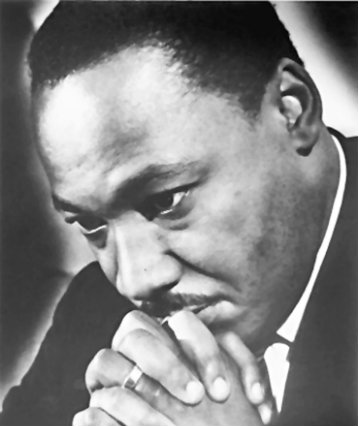Introduction
In the spring of 1968, King traveled to Memphis to support the 1,300 striking sanitation workers protesting low wages and unfit working conditions. At this point in his ministry, he had broadened his mission, speaking out not only for racial justice but also for greater economic equality and against the Vietnam War. On the night of April 3, he gave this sermon to a crowd gathered in the Bishop Charles Mason Temple Church of God. He was assassinated the next day. It is eerie to read his remarks, comprising largely a summing up of his life and a prophecy for the future, knowing now that it would be his last public utterance.
King begins his address with the assertion that he would choose no other time in which to live or lead, and ends with the affirmation that he has “seen the promised land.” How does he justify his preference for the present age? The speech contains some ideas not present in the other King speeches in this collection: a call for “economic withdrawal” (boycotts) from non-cooperating white businesses, and the development and strengthening of separate black institutions and black-owned banks. Does this represent a retreat from his “black and white together” integrationist “Dream”?
King counsels, as well as models, how to be a better brother to our fellow men. Toward the end of his speech, he asks his listeners to “develop a dangerous kind of unselfishness.” Applying the parable of the Good Samaritan to contemporary circumstances, he states: “The question is not, ‘If I stop to help this man in need, what will happen to me?’” Rather, it is this: “If I do not stop to help the sanitation workers, what will happen to them?” What does King mean by dangerous unselfishness? How is King inviting his auditors—then and now—to see themselves? Is he persuasive? Finally, why does King conclude by recounting his near-death experience? And why does he self-consciously compare himself to Moses, who was also allowed to go up to the mountaintop and to glimpse—but not enter—the Promised Land? What “Promised Land” has King seen at the end of his life?



Post a Comment